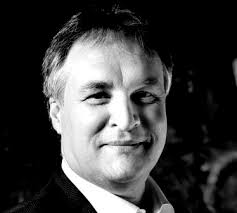
How do you build an organisation that will perform excellently today and continue to sustainably perform? And, above all, what should you absolutely not do? André de Waal has researched this, and has scientifically analysed what is demonstrably important in every kind of organisation, worldwide, in all sectors. The result of years of international research into the success factors of organisations that have achieved better financial and non-financial results compared to similar organisations over a period of 5 years and more.
The goal always turned out to be the permanent transformation of the shop floor into the most important layer within the organisation, whereby employees are enabled to make the right decisions, and where management does not always remain in control.
According to De Waal, there are five universal factors on which you need to focus in order to transform your organisation into a High Performance Organization (HPO):
- exceptional quality of management (appreciative, respectful, honest, trust-building),
- focussing on the long term (much more important than short-term successes),
- Continuous improvement (with an emphasis on simplification and alignment),
- nurturing an open culture (experimenting, and accepting that people make mistakes),
- Developing the quality of employees (a complementary and varied workforce).
It becomes really fascinating when we look at the non-differentiating factors from the study. In other words, what doesn't work ... and therefore, what you shouldn’t start with. These factors seem sensible, but are not at all decisive.
- For example, it is not advisable to initiate reorganisations in order to improve the performance of an organisation; reorganisations are, in fact, often detrimental to this.
- In terms of policy, the simple implementation of "a strategy" is absolutely no guarantee of success. The decisive factor is how unique your chosen strategy is compared to the competitors in the same sector.
- In addition, there is no direct link between ICT and excellence. ICT will only make a contribution if the digital technology fully supports one of the 5 universal factors mentioned above.
- Empowerment ... only when employees have clarity about their objectives, are sufficiently guided and it is thereby clear what can and cannot be done ("freedom box") can the freedom of action be a positive lever for better results. If not, this ‘power of having a say’ is more likely to show a negative correlation with organisational performance.
- Reward systems have no direct positive influence on the achievement of HPO status; they are merely so-called hygienic factors (normal basic conditions). Financial valuation must first and foremost be fair, equitable and transparent.
- Seeking salvation in benchmarking doesn’t help much either. Excellent organisations only use the best performance of their competitors as a lower limit for their own performance ... that’s what ambition means!
Contact us, and read more about how, in Stanwick, we guide organisations towards High Performance, or read André de Waal's book "How do you build a High Performance Organisation?

Jean-Paul Nauwelaers


